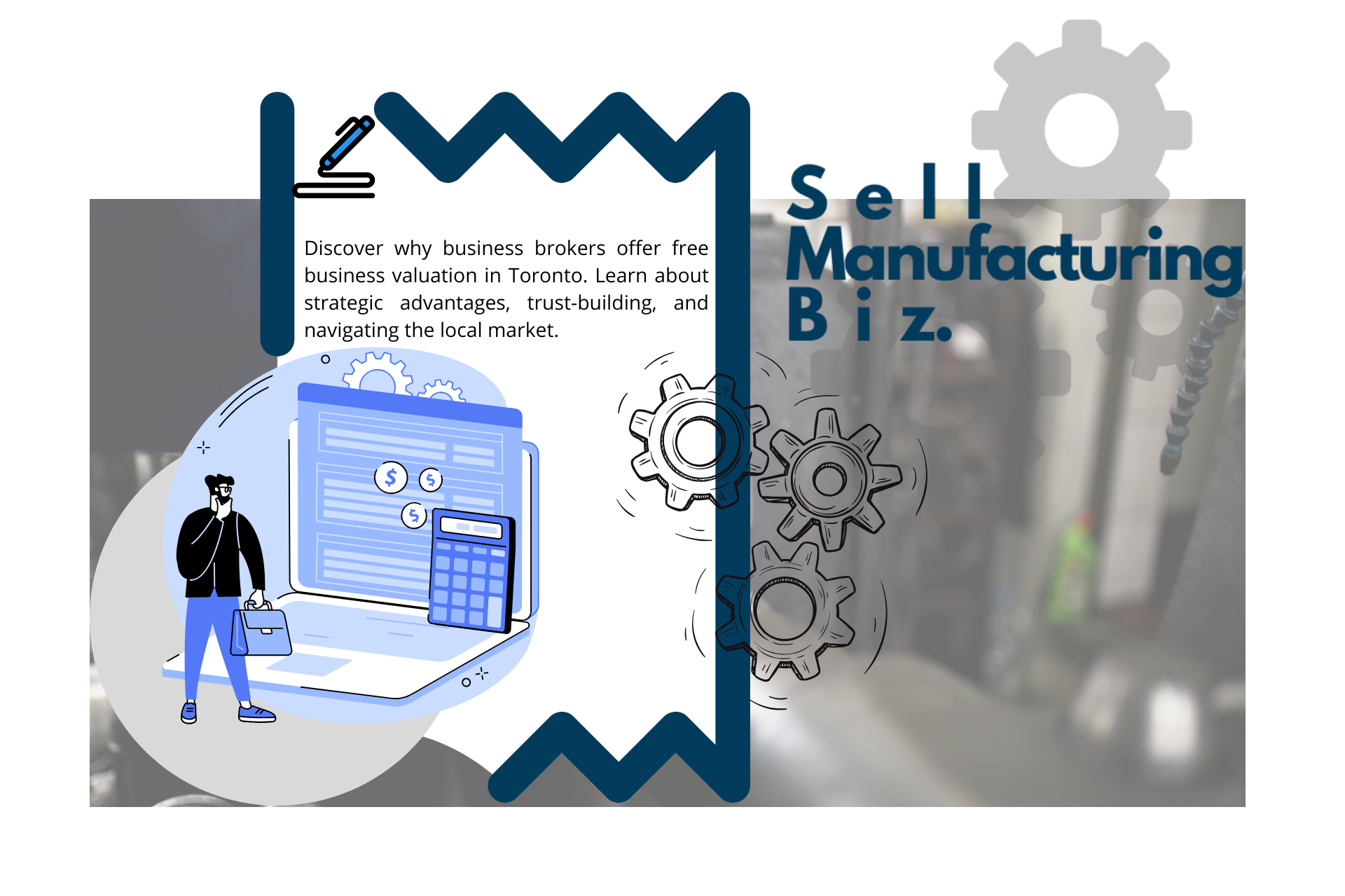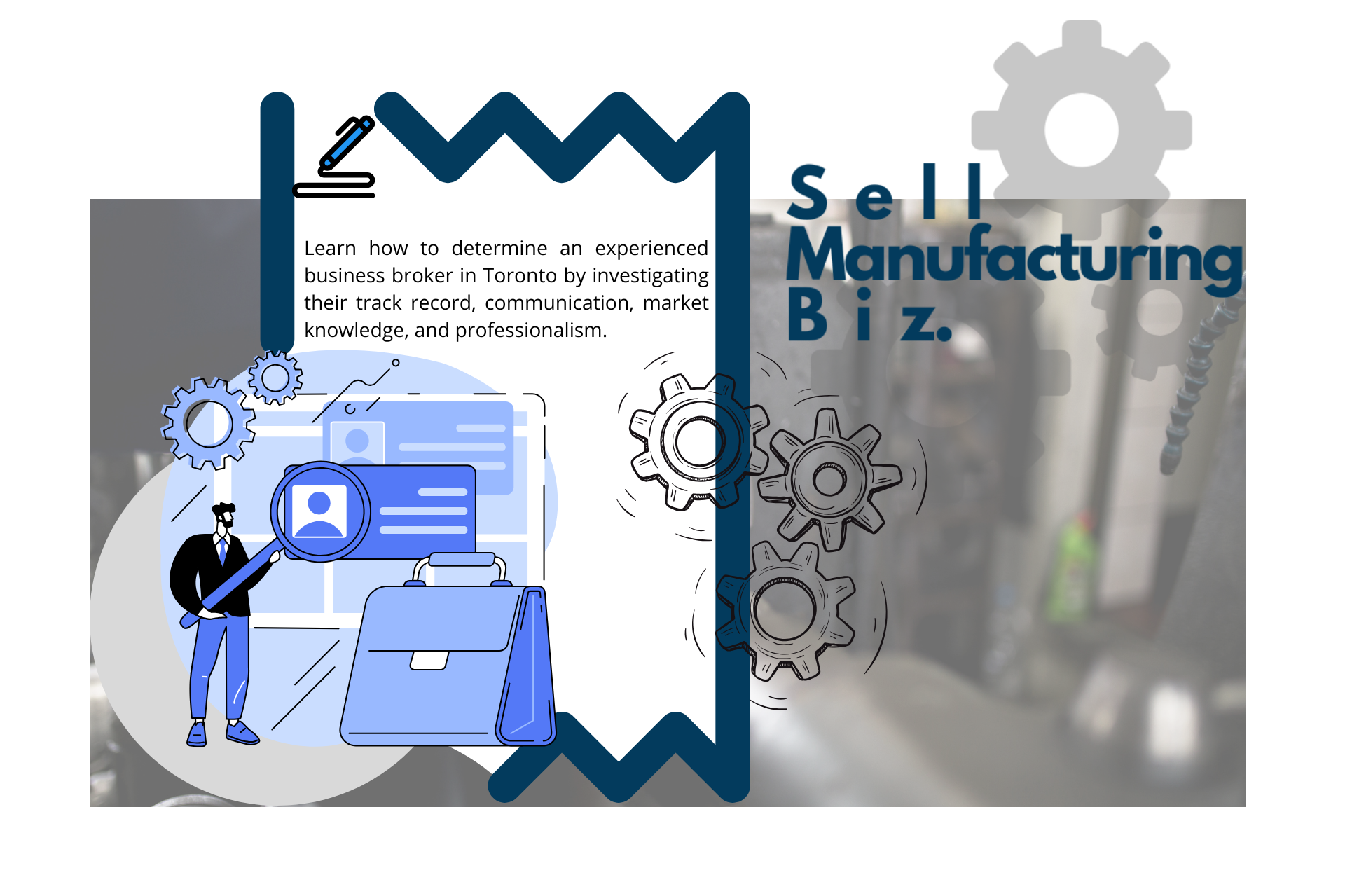Selling an industrial or manufacturing business requires a strategic approach that considers specialized assets, market conditions, and buyer motivations. A broker acts as your advocate, simplifying complexities and working towards the best possible outcome tailored to your unique situation.
Finding Top Business Brokers in Ontario: Navigating the Sale of Your Business
Top Business Brokers In Ontario
Thinking about selling your industrial or manufacturing business in Ontario?
It's a significant decision, and the process can feel quite complex. From accurately valuing your operations to finding the right strategic buyer, there are many moving parts.
Navigating the
- legalities,
- financial negotiations,
- Marketing your business effectively requires specialized knowledge.
This is where experienced business brokers, particularly those focused on the industrial and manufacturing sectors in Ontario, become invaluable partners.
For instance, a certified business broker like
Khaled Baranbo can provide expert guidance across major provinces, including BC, MB, SK, ON, and AB.
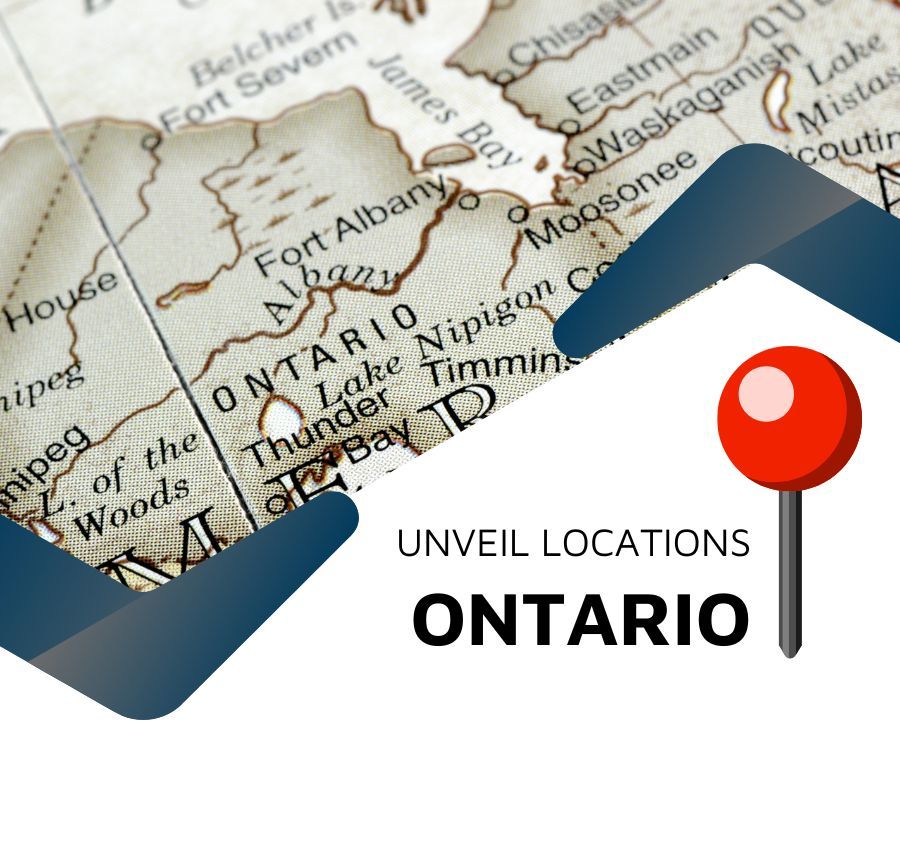
Key Takeaways
- Business brokers in Ontario specializing in industrial and manufacturing businesses can streamline the sale process, handling valuation, marketing, and negotiations with buyers.
- Accurate valuation is crucial; brokers understand the specific market drivers for industrial and manufacturing firms in Ontario, ensuring a competitive yet realistic asking price.
- These professionals leverage established networks to connect with qualified strategic buyers and investors actively seeking opportunities within Canada's industrial landscape. Finding a specialized broker with a broad network is key.
- A certified business broker specialized in the manufacturing and industrial sectors will work with you to align the sale strategy with your business goals, whether it's facilitating a succession plan or maximizing owners' value.
- Brokers possess expertise in the unique legal and
tax considerations relevant to
selling industrial and manufacturing businesses in Ontario, ensuring compliance and optimizing outcomes.
Table of Contents
- Understanding The Role Of Business Brokers In Ontario's Industrial Sector
- Streamlining The Selling Process For Manufacturers
- Navigating Complex Industrial Transactions
- Connecting With Qualified Strategic Buyers
- Key Benefits Of Engaging Ontario Business Brokers For Industrial Firms
- Accurate Business Valuation For Industrial Assets
- Local Market Expertise In Ontario's Industrial Hubs
- Access To A Wide Industrial Buyer Network
- Tailored Exit Strategies For Business Owners
- The Proven Process Of Selling Your Industrial Business In Ontario
- Confidential Discovery And Valuation
- Strategic Exit Planning For Manufacturing Firms
- Buyer Outreach And Negotiation For Industrial Acquisitions
- Due Diligence And Closing For Industrial Sales
- Choosing The Right Business Brokerage In Ontario For Industrial Businesses
- Assessing Broker Experience In Industrial Sectors
- Evaluating Market Knowledge Of Ontario's Industrial Landscape
- Understanding Their Network Of Industrial Buyers
- Reviewing Success Rates In Industrial Sales
- Navigating Legal And Tax Considerations For Industrial Businesses
- Share Sale Versus Asset Sale For Manufacturers
- Understanding Tax Implications For Ontario Manufacturers
- Ensuring Legal Compliance In Industrial Sales
- Maximizing Your Industrial Business Value
- Enhancing Buyer Appeal For Manufacturing Operations
- Strategic Positioning For Industrial Market Sale
- Expert Negotiation For Optimal Industrial Deal Terms
- Wrapping Things Up
- Frequently Asked Questions
- What specific services does a business broker offer for selling an industrial or manufacturing business in Ontario?
- Why is hiring a specialized business broker more beneficial than selling an industrial business independently?
- How do brokers in Ontario value industrial and manufacturing businesses?
- Will a business broker find buyers for my industrial company, or is that my responsibility?
- What are the key legal and tax considerations when selling an industrial business in Ontario?
- What is the typical timeframe for selling an industrial business with a broker in Ontario?
- The Current State Of Canada's Manufacturing And Industrial Industries
- Economic Headwinds And Uncertainty
- Labour Shortages And Skills Gaps
- Regulatory Burden And Compliance Costs
- Global Competition And Technological Advancements
- Succession Planning Challenges
- Shifting Market Demands And Consumer Preferences

Understanding The Role Of Business Brokers In Ontario's Industrial Sector
Selling an industrial or manufacturing business is often one of the most substantial financial transactions an owner will undertake. The M&A process is intricate, involving more than just finding a buyer; it requires a deep understanding of market dynamics, operational assessments, and complex financial structuring.
For owners in Ontario looking to exit, the sheer volume of tasks – from preparing detailed operational reports to negotiating with potential acquirers – can be overwhelming, especially while still managing the day-to-day demands of the business.
This is precisely where specialized business brokers become essential. They act as expert guides, navigating the complexities of selling industrial and manufacturing enterprises.
Their role is to simplify the process, enhance the business's marketability, and ultimately secure the best possible terms for the seller. They manage the heavy lifting, allowing owners to maintain focus on their core operations or prepare for their next chapter.
A certified business broker, such as Khaled Baranbo, can be instrumental in this process, offering services across Canada.
Streamlining The Selling Process For Manufacturers
When you engage a business broker, they essentially become the project manager for your sale. They break down the multifaceted selling journey into manageable stages.
This includes developing comprehensive marketing materials that highlight the unique strengths of your industrial or manufacturing operation, discreetly identifying and screening potential buyers, and managing the flow of sensitive information.
Their objective is to make the transition from listing to closing as efficient and stress-free as possible. Needless to say, their experience in handling numerous transactions means they can anticipate and mitigate common challenges, saving you considerable time and potential setbacks.
Navigating Complex Industrial Transactions
The sale of an industrial or manufacturing business in Ontario involves unique complexities that differ from other sectors.
These can include the:
- valuation of specialized machinery and intellectual property,
- environmental compliance,
- supply chain considerations,
- and labour relations. Brokers experienced in this field understand these nuances.
They are adept at structuring deals that account for these factors, managing intricate legal documentation, and navigating tax implications specific to asset sales or share transfers of industrial entities.
Their expertise ensures that all aspects of the transaction are handled correctly, preventing costly errors and ensuring legal compliance within Ontario's regulatory framework. For instance, they can help clarify the implications of selling specific operational assets versus the entire corporate entity.
Connecting With Qualified Strategic Buyers
A critical challenge in selling an industrial or manufacturing firm is identifying the right buyer – one who not only offers a competitive price but also has the strategic vision and capability to continue the business's legacy and growth.
Business brokers maintain extensive networks of potential buyers,
- including private equity firms,
- strategic corporate acquirers,
- and individual investors actively seeking opportunities in the industrial and manufacturing sectors across Canada.
They meticulously vet these prospects to ensure financial capacity and genuine interest, thereby saving you time and focusing efforts on serious contenders.
This targeted approach significantly increases the likelihood of a successful sale to a buyer who understands and values your business.
A broker like
Khaled Baranbo has a wide network that spans provinces like BC, MB, SK, ON, and AB.
Key Benefits Of Engaging Ontario Business Brokers For Industrial Firms
Selling your industrial or manufacturing business in Ontario, Canada, is a monumental undertaking. Attempting to manage it alone can be akin to navigating a complex industrial process without the right equipment.
Business brokers, especially those with a focus on Ontario's industrial landscape, serve as essential guides, simplifying the process and aiming for optimal financial outcomes. They bring a wealth of experience and market insight to the table, helping you avoid common pitfalls.
Accurate Business Valuation For Industrial Assets
Determining the true worth of an industrial or manufacturing business is challenging.
It involves more than just looking at profit margins; it requires assessing tangible assets like machinery and real estate, as well as intangible assets such as intellectual property, patents, and established supply chains.
A skilled business broker utilizes industry-specific data and comparable sales within Ontario to provide an objective valuation. They meticulously analyze your financials, operational efficiencies, and market position to establish a realistic and compelling asking price.
This precise valuation is fundamental to attracting serious buyers and securing a favourable offer. It prevents underpricing your hard-earned assets or overpricing and deterring potential interest.
Local Market Expertise In Ontario's Industrial Hubs
Ontario boasts diverse industrial and manufacturing hubs, each with its own economic drivers and market dynamics. Brokers specializing in this region possess granular knowledge of these local nuances.
They understand current buyer appetites, sector-specific trends, and the regulatory environment pertinent to businesses operating in areas like the:
- Greater Toronto Area,
- Southwestern Ontario's manufacturing belt,
- or Northern Ontario's resource-based industries.
This localized expertise enables them to effectively market your business to the most relevant buyers and ensure compliance with provincial regulations, thereby accelerating the sales cycle.
Access To A Wide Industrial Buyer Network
Finding the right buyer for an industrial or manufacturing operation can feel like searching for a specific component in a vast supply chain. Business Brokers or intermediaries, however, often have pre-existing relationships with a broad spectrum of potential acquirers.
This includes:
- strategic corporate buyers looking to expand their market share,
- private equity firms focused on industrial investments,
- and international companies seeking a foothold in the Canadian market.
Having access to this established network significantly reduces the time and effort required to find a suitable buyer, providing a pool of qualified and interested parties.
Tailored Exit Strategies For Business Owners
Every business owner has unique motivations for selling their business – whether it's retirement, pursuing new ventures, or facilitating a generational transfer. A business broker will collaborate with you to understand your personal and financial objectives.
Based on this understanding, they will help craft a bespoke exit strategy that aligns with your goals. This personalized approach ensures that the sale process is not only financially rewarding but also facilitates a smooth transition that supports your future plans. It’s about orchestrating the conclusion of one chapter and the beginning of the next.
The Proven Process Of Selling Your Industrial Business In Ontario
Selling your industrial or manufacturing business is a critical undertaking that demands a structured and methodical approach. It's about more than just finding a buyer; it involves a carefully orchestrated sequence of steps designed to maximize value and ensure a smooth transition. A seasoned business broker provides the roadmap and expertise to guide you through this entire process.
Confidential Discovery And Valuation
The initial phase involves a confidential consultation where you and your broker discuss your
- objectives,
- timeline,
- and specific goals for the sale.
The broker will then conduct:
- a thorough assessment of your business,
- delving into its operational capabilities,
- market position,
- customer relationships,
- and financial performance.
This includes a detailed valuation of all assets, from specialized equipment and real estate to intellectual property and workforce expertise. This rigorous analysis, benchmarked against recent industrial and manufacturing sales in Ontario, establishes a realistic and defensible asking price.
Accurate valuation is paramount for setting appropriate expectations and attracting serious interest.
Strategic Exit Planning For Manufacturing Firms
Sometimes, an industrial business may benefit from strategic enhancements before going to market. Your broker might recommend specific actions to increase its attractiveness to potential buyers.
This could involve:
- optimizing production processes,
- strengthening supplier contracts,
- enhancing environmental compliance,
- or improving workforce training programs.
The goal is to bolster the business's value proposition and mitigate any perceived risks that could deter acquirers.
This proactive planning ensures your business is presented in its best possible light, maximizing its market appeal. Resources for operational improvements can often be found through industry associations or government programs supporting manufacturing.
Buyer Outreach And Negotiation For Industrial Acquisitions
Once the business is optimally positioned, the broker initiates confidential outreach to a curated list of potential buyers.
This includes strategic players in the industry, private equity firms, and other relevant entities within their network. They will present your business discreetly, highlighting its key strengths and market opportunities.
As offers are received, the negotiation phase commences. Your broker will expertly manage these discussions, aiming to secure the most favourable price and terms. They will advise on deal structures, such as asset versus share sales, and ensure that all negotiated points align with your strategic objectives.
Due Diligence And Closing For Industrial Sales
Following an agreement in principle, the buyer will conduct a comprehensive due diligence process. This involves an in-depth review of all operational, financial, legal, and environmental aspects of your business.
Your broker will facilitate this process, ensuring that all requested information is provided promptly and accurately.
They will work closely with your legal counsel to finalize all necessary documentation, including the definitive purchase agreement. The ultimate goal is a seamless closing, where ownership is formally transferred and the transaction is successfully completed, marking the culmination of the sale process.

Choosing The Right Business Brokerage In Ontario For Industrial Businesses
Deciding to sell your industrial or manufacturing business in Ontario is a significant milestone. To ensure this pivotal event is managed effectively and yields the best possible outcome, selecting the right business brokerage is paramount. This isn't merely about finding an intermediary; it's about partnering with a firm that possesses the specialized expertise, market insight, and proven track record necessary for industrial and manufacturing transactions.
A certified business broker like Khaled Baranbo is a prime example of the specialized expertise you should seek, with a reach across Canada.
Your chosen broker will be your primary advocate, negotiator, and strategic advisor throughout the sale. Therefore, it's crucial to select a firm that demonstrates trustworthiness, a deep understanding of your industry, and a commitment to achieving your specific goals. Investing time in thoroughly vetting potential brokerages will yield substantial benefits throughout the sale process.
Assessing Broker Experience In Industrial Sectors
When evaluating brokerages, prioritize those with demonstrable experience in selling industrial and manufacturing businesses. Inquire about the types and sizes of companies they have represented, and whether they have handled transactions similar to yours. A broker who primarily deals with small retail operations may not possess the nuanced understanding required for a complex manufacturing sale.
It's also important to understand the team structure – who will be directly involved in managing your deal? Clarity on the experience level of the individuals handling your transaction is vital.
Proven experience in your specific sector is a strong indicator of future success.
Evaluating Market Knowledge Of Ontario's Industrial Landscape
Ontario's industrial and manufacturing sectors are diverse and dynamic. A broker with deep local market knowledge will understand the specific economic conditions, regulatory frameworks, and buyer trends affecting businesses in your region.
They should be able to articulate not only a theoretical valuation but also a realistic market price based on current demand and competitive offerings within Ontario. This specialized insight is invaluable for positioning your business effectively and attracting the right buyers. You can often find firms with this expertise listed among Canadian business brokers.
Understanding Their Network Of Industrial Buyers
A key advantage of working with a broker is their established network of potential buyers. Ask about the composition of their buyer pool. Do they have relationships with strategic corporate acquirers, private equity firms specializing in industrial investments, or international entities looking to enter the Canadian market?
A broker with a robust and active network can significantly expedite the sale process and generate competitive offers. This network acts as a powerful tool for reaching qualified buyers who are actively seeking opportunities in your sector. A broker like Khaled Baranbo has a network that covers key provinces like BC, MB, SK, ON, and AB.
Reviewing Success Rates In Industrial Sales
Seek evidence of the brokerage's success. Request references or case studies of previous industrial and manufacturing businesses they have sold. Examine metrics such as the ratio of asking price to selling price, the duration of the sales process, and the types of buyers they typically attract.
While past performance is not a guarantee of future results, a consistent track record of successful transactions indicates competence and effectiveness. Transparency regarding their fee structure and sales process is also essential for building trust.
Navigating Legal And Tax Considerations For Industrial Businesses
Share Sale Versus Asset Sale For Manufacturers
When selling an industrial or manufacturing business in Ontario, a fundamental decision is how to structure the transaction: as a share sale or an asset sale.
In a share sale, the buyer acquires the ownership shares of your company, inheriting all its assets, liabilities, and operational history. This can be a simpler exit for the seller, providing a clean break.
Conversely, an asset sale involves the buyer purchasing specific assets of the business, such as
- machinery, inventory,
- intellectual property,
- and customer contracts,
- while liabilities may remain with the seller.
Buyers often prefer asset sales for tax advantages and the ability to select specific assets, but this structure can be more complex to execute, requiring detailed asset listing and valuation. The choice significantly impacts tax liabilities and legal responsibilities.
Understanding Tax Implications For Ontario Manufacturers
The tax consequences of selling your business can substantially affect your net proceeds. The structure of the sale—whether shares or assets—plays a critical role. For share sales, capital gains tax typically applies.
Ontario business owners may be eligible for the Lifetime Capital Gains Exemption (LCGE), which can significantly reduce or eliminate tax on the sale of qualifying small business corporation shares. This is a crucial consideration for maximizing seller proceeds.
Asset sales can involve a mix of capital gains and recapture of depreciation, potentially leading to a higher immediate tax burden. It is highly advisable to consult with tax professionals specializing in business sales in Ontario to ensure optimal tax planning and compliance, leveraging all available exemptions and deductions.
Ensuring Legal Compliance In Industrial Sales
Beyond tax considerations, numerous legal aspects must be meticulously managed. This includes ensuring all contracts with suppliers, customers, and employees are properly addressed or transferable.
Environmental compliance, regulatory permits, and licensing are particularly critical in industrial and manufacturing sales. The purchase agreement is a cornerstone document, detailing all terms, conditions, warranties, and representations. It is imperative to have experienced legal counsel review this agreement thoroughly to safeguard your interests and ensure no unforeseen liabilities arise post-sale.
Business brokers often collaborate with legal teams to streamline this process, ensuring all legal requirements are met for a compliant and secure transaction.
Maximizing Your Industrial Business Value
Achieving the highest possible sale price for your industrial or manufacturing business hinges on strategic preparation and effective presentation. Just as a well-maintained facility operates more efficiently, a business meticulously prepared for sale is more attractive to potential buyers.
Proactive efforts in enhancing operational performance, financial clarity, and market positioning can significantly influence the final valuation and the overall success of the transaction.
Enhancing Buyer Appeal For Manufacturing Operations
Buyers in the industrial and manufacturing sectors seek businesses that are not only profitable but also stable, scalable, and well-managed. To enhance appeal, focus on maintaining meticulously organized financial records, including up-to-date statements and tax filings.
Demonstrating a diverse and loyal customer base reduces perceived risk. Furthermore, showcasing efficient operational processes, robust supply chain management, and a skilled workforce contributes to a strong value proposition.
A business that can operate effectively with minimal disruption post-acquisition is highly desirable.
Strategic Positioning For Industrial Market Sale
Effective market positioning is key to capturing buyer interest. This involves understanding current industry trends, identifying your business's unique competitive advantages, and articulating them clearly.
A business broker can assist in highlighting critical selling points, such as proprietary technology, strong brand reputation, strategic location, or established market share.
Timing the sale strategically, perhaps after implementing key improvements or during favourable market conditions, can also optimize the outcome. The goal is to present your business as a compelling investment opportunity.
Expert Negotiation For Optimal Industrial Deal Terms
The negotiation phase is where a skilled business broker's expertise is most valuable. They act as a professional intermediary, working to secure the best possible price and terms.
This extends beyond the headline figure to include aspects like payment structures, transition support, non-compete clauses, and the scope of included assets. A broker will ensure that all negotiated terms align with your priorities while fostering a constructive relationship with the buyer. Securing favourable terms is as critical as achieving the highest price for long-term success.
Key negotiation points often include:
- Sale Price: The agreed-upon valuation for the business.
- Payment Structure: Terms of payment, including potential seller financing or earn-out provisions.
- Transition Period: The duration and nature of seller involvement post-closing.
- Non-Compete Agreements: Restrictions on the seller's future business activities.
- Included Assets: Specific definition of tangible and intangible assets being transferred.
Preparing your industrial or manufacturing business for sale is an ongoing strategic process. By focusing on operational excellence, financial transparency, and market positioning, you significantly enhance its attractiveness and potential sale price.
A
skilled broker will guide you through these critical steps, transforming a complex undertaking into a manageable and rewarding experience.
Wrapping Things Up
Selling your industrial or manufacturing business in Ontario is a complex but achievable goal with the right support. Engaging a specialized business broker can demystify the process, from accurately valuing your operations and assets to finding strategic buyers and navigating intricate negotiations.
Their expertise in the industrial sector ensures your business is presented effectively, maximizing its appeal and potential sale price. Partnering with a broker allows you to focus on your business's continued success while ensuring a smooth and profitable transition, setting you up for your next endeavours. Consider a certified broker like Khaled Baranbo for expert assistance across Canada.
Frequently Asked Questions: Ontario Business Owners Finding Qualified Business Brokers
What specific services does a business broker offer for selling an industrial or manufacturing business in Ontario?
A business broker specializing in industrial and manufacturing sectors will help with business valuation, identifying and vetting strategic buyers, developing marketing materials, managing negotiations, and overseeing the due diligence and closing processes. They leverage their industry knowledge and network to achieve the best possible outcome for sellers.
Why is hiring a specialized business broker more beneficial than selling an industrial business independently?
Selling an industrial business involves unique complexities, such as valuing specialized equipment, understanding industry-specific regulations, and identifying strategic buyers. Independent sellers often lack the expertise, network, and negotiation skills to navigate these challenges effectively. A specialized broker brings this expertise, saving time, reducing stress, and maximizing the sale price.
How do brokers in Ontario value industrial and manufacturing businesses?
Brokers assess value by analyzing financial statements, operational efficiencies, market conditions, tangible assets (machinery, real estate), and intangible assets (intellectual property, customer relationships). They compare these factors against recent sales of similar businesses in Ontario's industrial landscape to determine a competitive market value.
Will a business broker find buyers for my industrial company, or is that my responsibility?
A primary role of a business broker is to proactively identify and connect with potential buyers. They maintain extensive databases and networks of strategic acquirers, private equity firms, and investors actively seeking opportunities in the industrial and manufacturing sectors. They manage the buyer outreach and qualification process.
What are the key legal and tax considerations when selling an industrial business in Ontario?
Key considerations include the choice between a share sale and an asset sale, each with distinct tax implications. Owners must understand capital gains tax, potential eligibility for the Lifetime Capital Gains Exemption, and the tax treatment of various business assets. Legal compliance involves ensuring all contracts, permits, and environmental regulations are addressed. Brokers often work with legal and tax professionals to navigate these complexities.
What is the typical timeframe for selling an industrial business with a broker in Ontario?
The timeframe can vary significantly based on the business's size, complexity, market conditions, and the asking price. While some sales can be completed within six months, others, particularly larger or more specialized operations, may take a year or longer. A broker's efficiency in marketing and negotiation can help expedite the process.
The Current State Of Canada's Manufacturing And Industrial Industries
Canada's manufacturing and industrial sectors are currently navigating a complex economic landscape, characterized by a confluence of factors that are prompting many business owners to consider exiting the market. This trend is particularly pronounced in Ontario, which has historically been a powerhouse for these industries. Several key reasons are driving this sentiment:
Economic Headwinds And Uncertainty
Persistent inflation, rising interest rates, and global supply chain disruptions have created significant economic headwinds. For manufacturers, this translates to increased costs for raw materials, energy, and transportation, squeezing profit margins. The uncertainty surrounding future economic conditions makes long-term planning and investment decisions challenging, leading some owners to opt for a sale now rather than risk future downturns.
Labour Shortages And Skills Gaps
A critical issue facing Canadian industries, especially in Ontario, is the persistent shortage of skilled labour. Many manufacturing roles require specialized training and experience, and the aging workforce, coupled with difficulties in attracting new talent, has created a significant skills gap. This not only impacts current production capacity but also raises concerns about the future viability and growth potential of businesses, making them less attractive to potential buyers or more difficult to operate effectively.
Regulatory Burden And Compliance Costs
Navigating a complex web of federal, provincial, and municipal regulations can be a significant burden for industrial businesses. Compliance with environmental standards, workplace safety regulations, and various industry-specific rules requires substantial investment in time and resources. For some owners, the ongoing cost and complexity of regulatory compliance, particularly in light of evolving standards, become a compelling reason to exit.
Global Competition And Technological Advancements
Canadian manufacturers face intense competition from global players, particularly from countries with lower labour costs and more streamlined regulatory environments. Furthermore, the rapid pace of technological advancement, including automation and digitalization, requires significant capital investment to remain competitive. Businesses that are unable to make these investments may find themselves falling behind, prompting owners to sell rather than face obsolescence.
Succession Planning Challenges
Many industrial and manufacturing businesses in Canada are family-owned or have been operated by the same individuals for decades. As owners age, succession planning becomes a critical issue. Finding a suitable successor, whether within the family or externally, can be difficult. This often leads owners to seek a sale as the most viable option for transitioning ownership and ensuring the business's continuity, even if it means exiting sooner than initially planned.
Shifting Market Demands And Consumer Preferences
Changes in consumer preferences and the rise of new industries can also impact traditional manufacturing sectors. For example, a growing emphasis on sustainability and the circular economy may require significant shifts in production processes and materials. Businesses that are slow to adapt to these evolving market demands may find their products or services becoming less relevant, prompting owners to consider selling before their market share erodes further.
Find a Business Broker Near You in Canada
Get in this queue for a whale’s tail. They are a beauty, eh
We just wanted to say hi and thanks for stopping by our little corner of the web. :) “Go ahead and eat your elephant ears on the chesterfield. I’ll come sit with you as soon as I take these runners off.” But, alas, this is the Internet.
However, we think you'll love our email newsletter about building value and properly position your manufacturing company before transition/exit your business.
As a special welcome gift for subscribing, you'll also get our helping and educational guides, tips, tutorials, etc.. for free.
It's filled with the best practices for retiring serial business owners like Joseph-Armand Bombardier, John Molson, Warren Buffett and many more.
Just sign up for our emails below.
